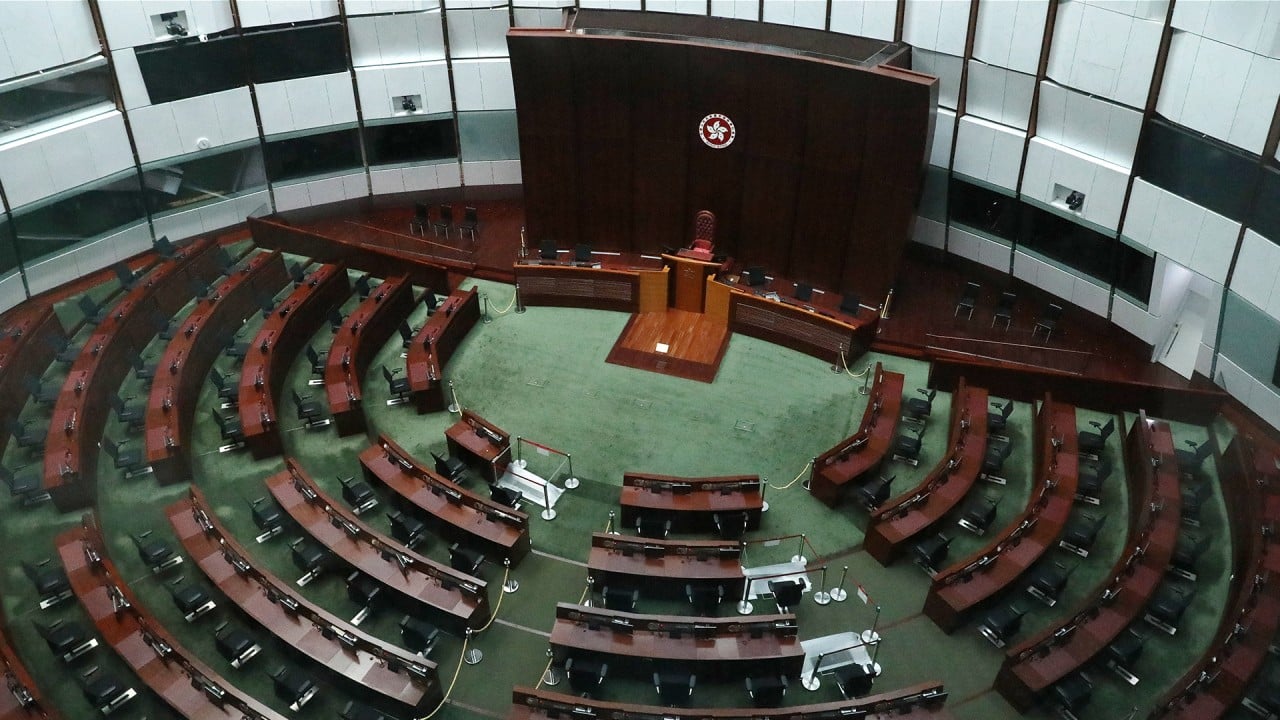
Pro-establishment hawks in ascendancy as Beijing debates fate of Hong Kong lawmakers banned from seeking re-election
- Hardliners want Beijing to stop quartet barred from re-election sitting in extended Legislative Council term
- But moderates don’t agree and some say they should be allowed to stay if they take an oath agreeing to uphold the Basic Law
But most believe the opposition legislators, Alvin Yeung Ngok-kiu, Kwok Ka-ki and Dennis Kwok of the Civic Party, alongside the accountancy sector’s Kenneth Leung, should not be able to keep their seats.

A pro-Beijing figure said he was among a minority who believed all serving legislators, including those barred from seeking re-election, should be allowed to stay in the extended term of Legco, or a provisional legislature.
“The majority favours banning those who have been disqualified from staying on,” the person, speaking on condition of anonymity, said. “Many people within the pro-establishment camp are inclined to second-guess the thinking of the central government and express views as conservative as possible.”
The hawks within the government camp are at odds with two unexpected critics – two mainland experts on Hong Kong affairs who at times hold a hardline stance on the city’s political development.
Hong Kong national security law official English version
Li Xiaobing, a law professor at Nankai University in Tianjin, and Tian Feilong, an associate professor at Beihang University’s law school in Beijing, said it would be better to extend the term of incumbent lawmakers, including the four opposition legislators.
Noting that the elections had been postponed because of the pandemic, Li said the idea of purging certain opposition lawmakers for political considerations, which he called childish, would put Beijing in a difficult position.
“The central government should help such pro-establishment politicians mature politically,” Li said.
Tian said continuing to serve “in current term was a separate issue” to their disqualification from seeking re-election.
Chief Executive Carrie Lam Cheng Yuet-ngor announced on July 31 that the Legco polls, originally planned for September 6, would be pushed back by a year because of concerns over the threat to public health.

03:39
Hong Kong Legislative Council elections postponed by a year
Election officials had cited the national security law and previous calls by some opposition politicians for foreign governments to sanction Beijing and Hong Kong as reasons for their disqualification.
Lam said it would be most pragmatic to simply extend the term and her own view was that all sitting members should carry on if the term was extended
“I am not being hawkish. I am a fan of logic,” Tse said. “If the government has taken the first step to ban them from seeking re-election, it is difficult to justify itself by allowing them to serve in the extended term.”
To stay or not to stay in Legco? Hong Kong opposition torn
Wong Kwok-kin, a lawmaker from the pro-Beijing Federation of Trade Unions, said the four lawmakers would just continue to “cause trouble in the chamber” if they were allowed to stay.
Ip Kwok-him, a member of the Executive Council, the chief executive’s de facto cabinet, suggested setting up a “caretaker Legco”, comprising all but the four lawmakers in question, saying it did not “make sense if they stay for another year”.
But Jasper Tsang, the founding chairman of pro-Beijing Democratic Alliance for the Betterment and Progress of Hong Kong, told a radio programme last week thatit “would not be proportionate” if the invalidation of candidacies by election officials led to lawmakers being ousted from their council duties.

Raymond Tam Chi-yuen, now a Hong Kong deputy to the NPC and former secretary for constitutional and mainland affairs, had earlier suggested asking all existing lawmakers, including the four, to take their oaths again before carrying on in the caretaker legislature for another year.
But Tam Yiu-chung, Hong Kong’s sole delegate to the NPCSC, said there would be conflicts if the four remained, and their status was “pending a discussion” in the meeting in Beijing.
Professor Ray Yep Kin-man, a political scientist at the City University, said as the hardliners in the pro-establishment camp were in the majority, he saw little grounds for optimism that the four would be allowed to remain without conditions attached.
Yep said he believed Beijing might not have made up its mind on whether to allow the four to stay in the provisional term, when Lam had suggested all sitting members should carry on.


